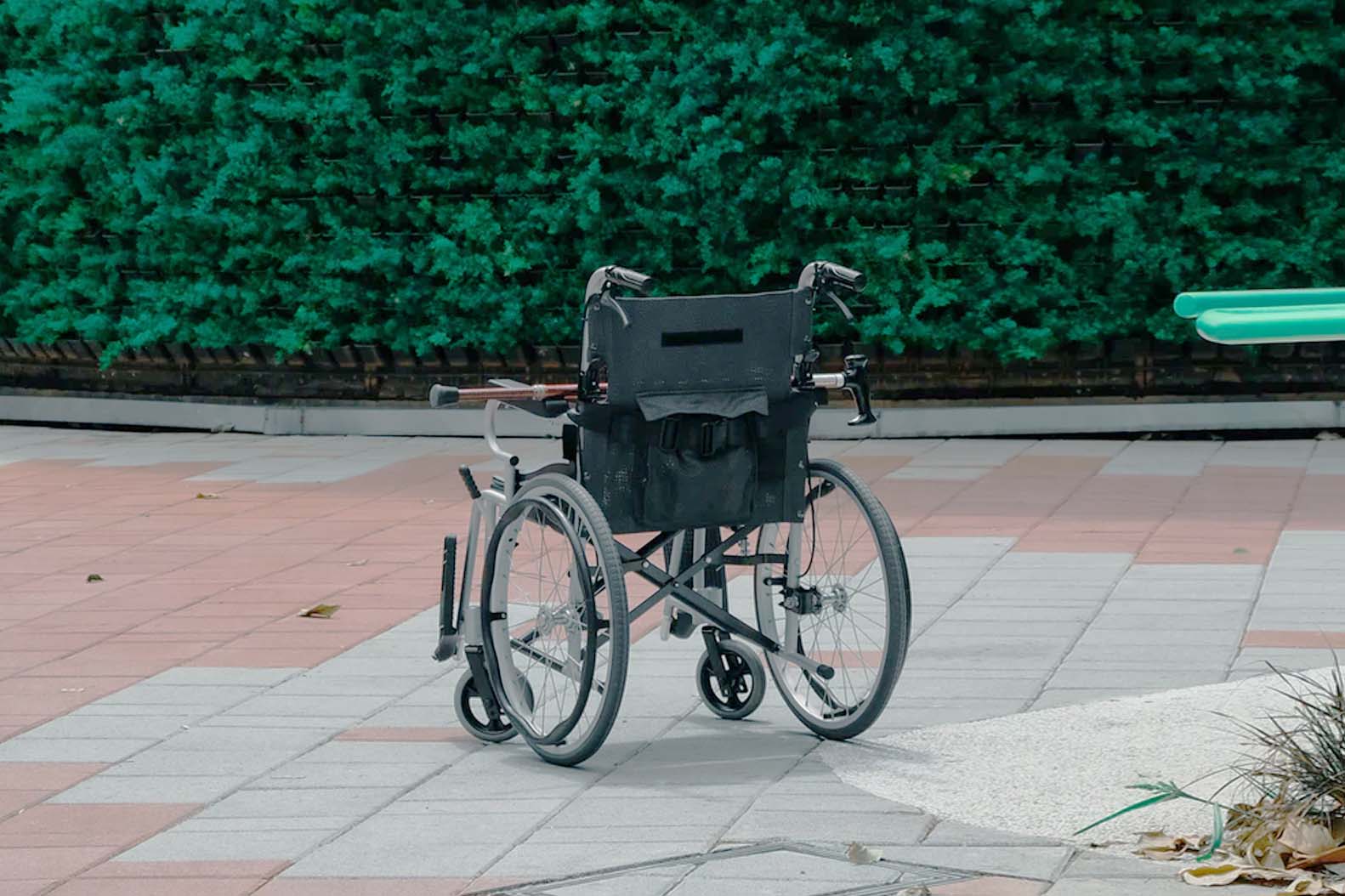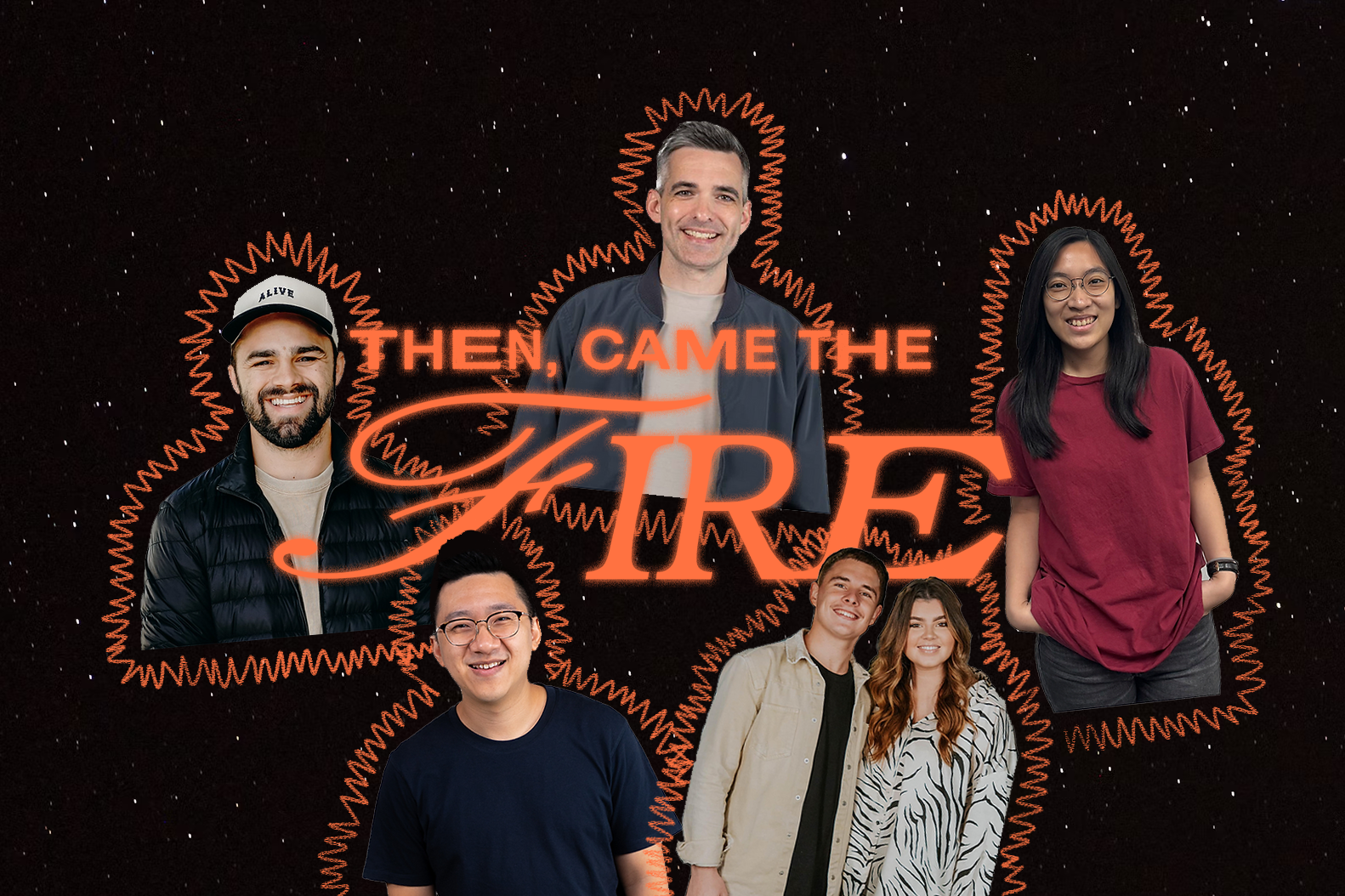I once talked to a mother whose child had autism, and she told me of a heart-breaking experience.
The mum had brought her child to Sunday school, but the child’s behaviour had upset the other mums whose kids were in the same class.
So these mums approached the pastor to express their concerns, saying they were afraid of how the child would behave — how he didn’t know how to share toys and would hit himself whenever he got upset — and so they did not want their own children to come into contact with the child.
Since the Sunday school leaders couldn’t figure out how to resolve the situation, the pastor and the Sunday school teachers were asked to tell the mother to not bring her child to Sunday school anymore.
“Know who you are because you know whose you are,” says Mike Pilavachi at Impossible Conference 2020
Hurt by this response, the mother left and never went back to that church. Although there was a follow-up call from a pastor to apologise, the damage was done.
Hearing the story, I could feel how the mother struggled with that sense of shame and guilt, and how all those experiences of being unwelcomed started to make her and her child avoid social gatherings.
Rethinking disability
As a society, we are not unfamiliar with disability, and yet disabled people continue to face discrimination and lack of regard in various ways, whether it’s being perceived as lacking, abnormal or having something to be ashamed of.
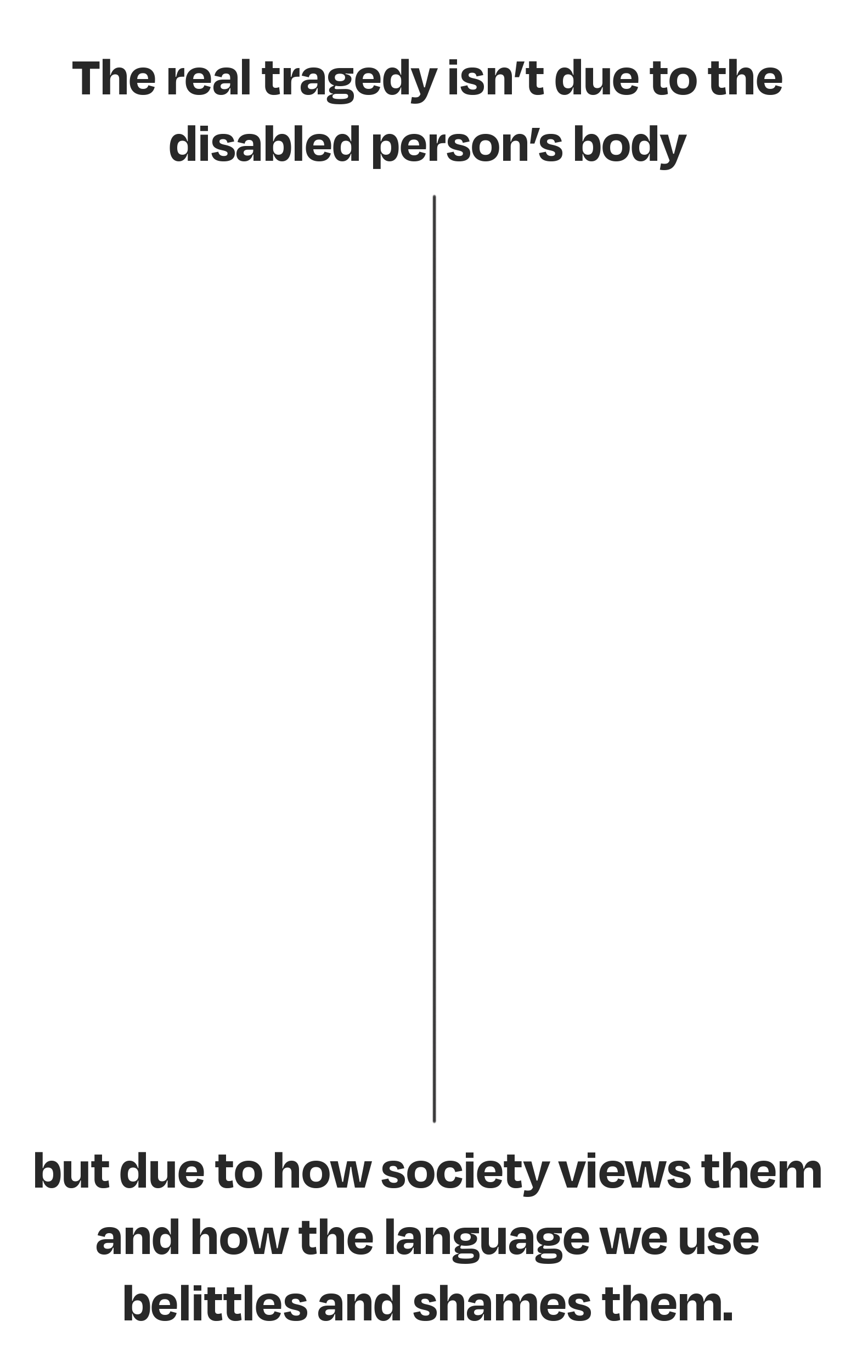
Sadly, even the church gets affected by this culture, despite the clear calling for the church to be a place and a people that demonstrates God’s love and acceptance of all.
For people with special needs, sometimes the church can, in fact, be unapproachable, where they can only ever be on the periphery, if not excluded altogether.
This definitely undercuts the testimony that the church is supposed to have as the body of Christ, and thus becomes a hindrance to the gospel.
The real tragedy isn’t due to the disabled person’s body, but due to how society views them and how the language we use belittles and shames them.
Because the society sees itself as predominantly strong and healthy, this leads to a certain group of people being seen as definitively handicapped.
For those of us who are “healthy”, the health and wholeness we experience is but temporary.
When I tried to think through what the Bible had to teach us about disability, I realised that disability forces us who don’t have them to recognise the weakness of our bodies.
For those of us who are “healthy”, the health and wholeness we experience is but temporary.
We can easily, at any point, experience restriction and pain, and our bodies will eventually succumb to decay and death.
The way I see it, because disabled people tend to be a lot more aware of their own weaknesses, it also makes them more able to depend on others and on God.
This reminds me of what Paul had written: The power of God is made perfect in man’s weakness (2 Corinthians 12:9).
I have begun to see that having disability is not quite the same as being sick and needing treatment. They simply need to rely on others to live.
I would often see friends sharing photos of their day-to-day activities with their special needs children, where the kids would still do the usual chores with some assistance from the adults.
Whenever I encounter this scene, it makes me think of the word “weakness” in that the same applies to myself.
Seeing children do chores that are beyond their capabilities remind me of how we often imagine ourselves as unbeatable, but how we are also, in fact, small and fragile.
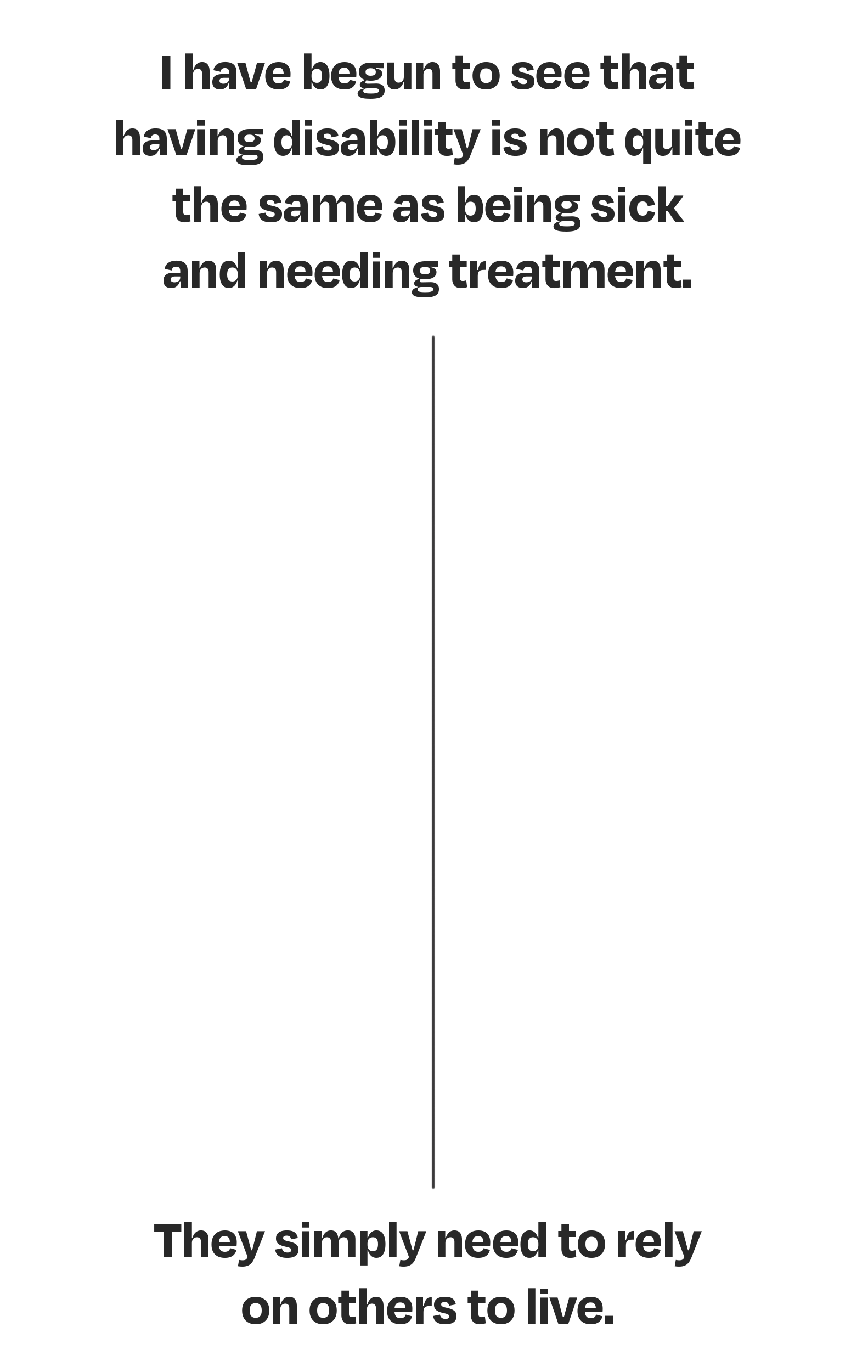
The last two years of the pandemic, in fact, should have shattered our veneer of self-sufficiency and woken us up to the fact that we very much rely on others to live.
Because the reality is, no one is completely self-sufficient and absolutely independent of any other person.
The idea of self-sufficiency is in fact a fantasy because we are all interdependent.
Weakness is the new strength
When we learn to recognise our own weaknesses, then we will have strength to change our relationship with God and with others.
When we are willing to admit that we are weak, then we become more willing to open ourselves to God and let Him be the Lord of our lives.
Acknowledging our vulnerabilities also allows us to begin to connect with disabled people, and to come to the realisation that we are all God’s creation and made to depend on each other.
American psychologist Ed Welch once said: “Weakness — or neediness — is a valuable asset in God’s community. Jesus introduced a new era in which weakness is the new strength. Anything that reminds us that we are dependent on God and other people is a good thing.”
I remember a lady who had two special needs children and was so overwhelmed with the day-to-day needs. And yet, she was blessed to have the support of her church family, to whom she could open up and share her struggles and needs.
The lady told me how she really felt the church’s support whenever she shared about her burdens, and how they were understanding of her weaknesses and allowed her to be as honest and vulnerable as she could.
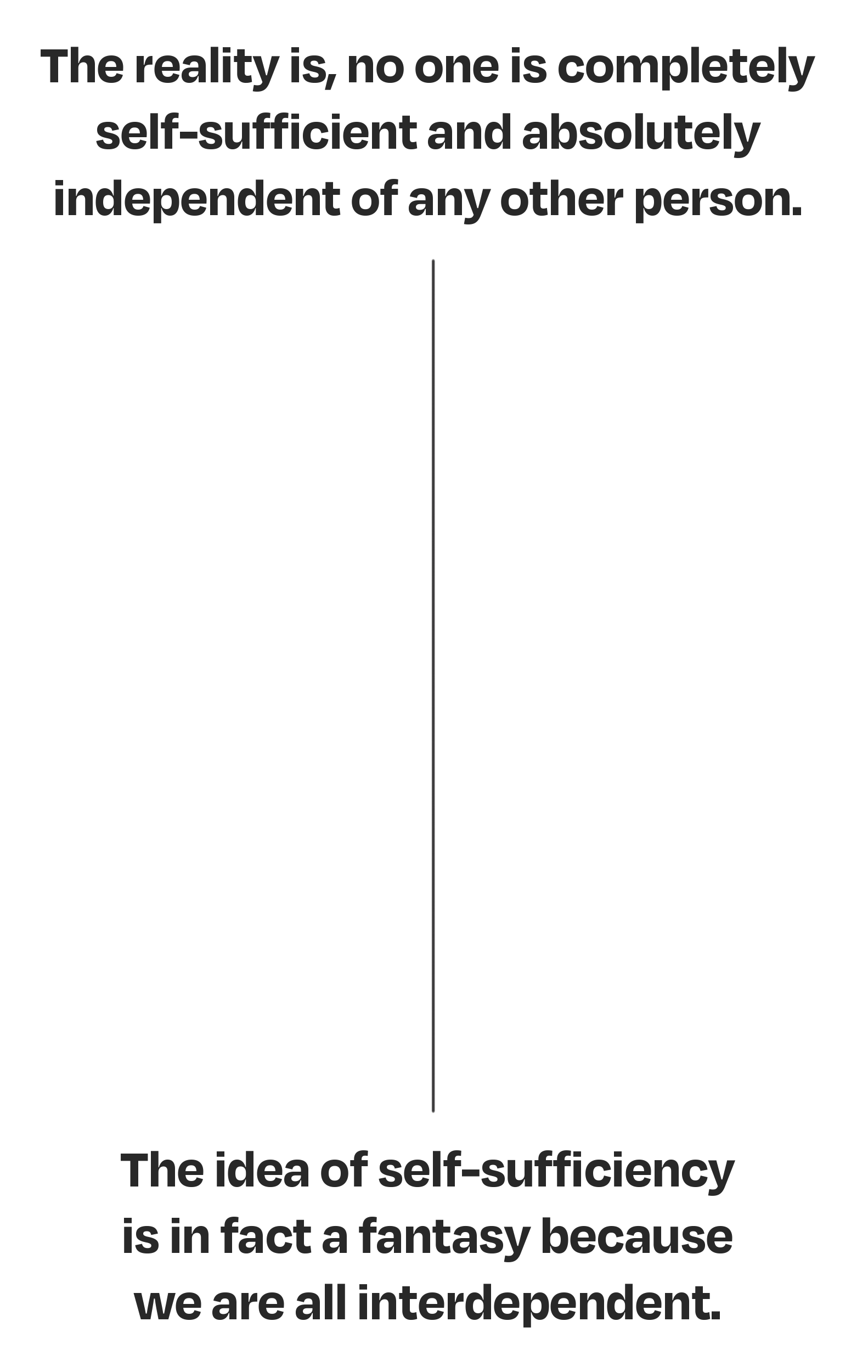
Unfortunately, this isn’t the case with all churches. There are people who may expect that those who are in the faith should not harbour any pessimistic thoughts or emotions.
So when some people grieve and express their pain or share their doubts or anger, this often leads to other believers recoiling from them or even rebuking them, criticising them as lacking in faith or not being of the Spirit.
When we learn to recognise our own weaknesses, then we will have strength to change our relationship with God and with others.
Thankfully, Jesus will never rebuke us for the emotions we have. He is more than willing to sit with us and help us sift through our emotions and needs.
Through my encounters with these special children, I have learnt how God’s values are so different from ours.
I wonder if perhaps we have been blinded for far too long by the world, not recognising how we are each uniquely made and treasured by God, created for a relationship with Him and with each other.
This article was first published on YMI and is republished with permission.


